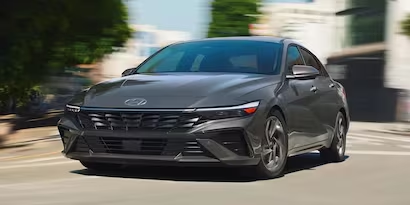Hyundai, a prominent player in the automotive industry, has been actively pursuing hybrid technology to cater to the growing demand for fuel-efficient and eco-friendly vehicles. This overview dives deep into Hyundai’s hybrid lineup, highlighting key models, technological innovations, market strategies, and consumer benefits.
Understanding Hyundai Hybrid Technology
Hyundai’s hybrid vehicles combine an internal combustion engine with an electric motor to optimize fuel efficiency and reduce emissions. The technology varies across models, with advancements in battery capacity, regenerative braking systems, and integration of electric powertrains.
Key Technological Features:
- Hybrid Powertrain: Integrates gasoline engines with electric motors to enhance fuel efficiency.
- Battery Technology: Lithium-ion batteries with varying capacities depending on the model.
- Regenerative Braking: Captures kinetic energy during braking to recharge the battery.
- Smart Charging: Optimizes charging cycles for improved battery longevity.
Hyundai Hybrid Models: A Comprehensive Lineup
Hyundai offers a diverse range of hybrid models, each catering to different consumer needs and preferences. From compact sedans to SUVs, Hyundai’s hybrid lineup combines performance, efficiency, and technological innovation.
Notable Hyundai Hybrid Models:
- Hyundai Ioniq Hybrid: A compact hatchback known for its exceptional fuel efficiency and sleek design.
- Hyundai Sonata Hybrid: A midsize sedan offering a blend of comfort, technology, and hybrid efficiency.
- Hyundai Tucson Hybrid: A popular SUV model that combines spaciousness with eco-friendly performance.
- Hyundai Santa Fe Hybrid: An SUV known for its robust performance and hybrid drivetrain options.
Also Read : Exploring the Features of Hyundai Ioniq Hybrid
Market Performance and Consumer Reception
Hyundai’s hybrid models have garnered positive feedback from consumers and automotive critics alike. The market performance reflects a growing interest in eco-friendly vehicles and Hyundai’s commitment to sustainable mobility solutions.
Consumer Benefits:
- Fuel Efficiency: Hyundai hybrids offer impressive mileage, reducing fuel costs for owners.
- Environmental Impact: Lower emissions contribute to a cleaner environment and reduced carbon footprint.
- Technology Integration: Advanced features enhance driving experience and comfort.
- Cost Savings: Government incentives and lower maintenance costs make hybrids cost-effective over time.
Technological Innovations and Future Outlook
Hyundai continues to innovate in hybrid technology, with advancements in battery efficiency, autonomous driving features, and connectivity options. The future outlook includes expanding the hybrid lineup and integrating more sustainable practices into vehicle production.
Upcoming Innovations:
- Next-Generation Batteries: Improved energy density and faster charging capabilities.
- Connected Vehicle Technology: Enhanced connectivity for smart navigation and remote vehicle management.
- Autonomous Driving Features: Integration of AI for safer and more efficient driving experiences.
- Sustainable Practices: Eco-friendly materials and manufacturing processes to reduce environmental impact.
Conclusion
In conclusion, Hyundai’s commitment to hybrid technology underscores its position as a leader in sustainable mobility solutions. With a diverse lineup of hybrid models, advanced technological innovations, and positive market reception, Hyundai continues to shape the future of eco-friendly transportation. As consumer preferences shift towards sustainability and efficiency, Hyundai is poised to meet these demands with innovative hybrid vehicles that offer both performance and environmental responsibility.
This comprehensive overview provides a structured and informative look into Hyundai’s hybrid models, covering technology, models, market reception, innovations, and future prospects. Each section is designed to educate and engage readers interested in hybrid vehicles and sustainable transportation solutions.
(source)
Originally posted 2024-07-12 08:02:02.
